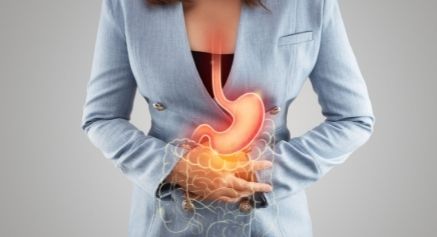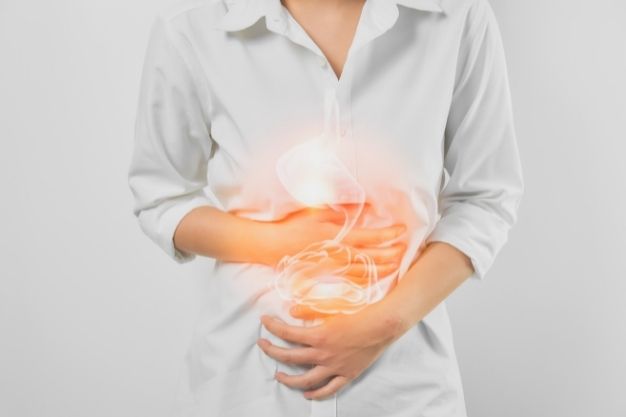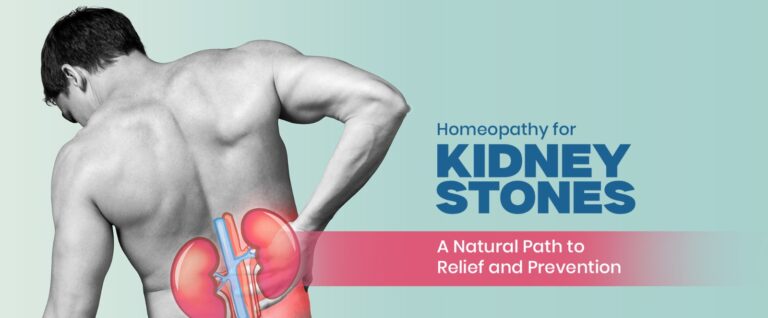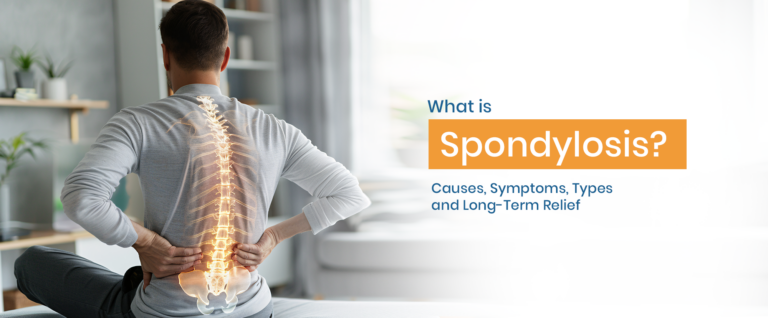What exactly is chronic gastritis?
Chronic gastritis is a long-term disease in which the mucus-lined layer of the stomach, also known as the gastric mucosa, becomes inflamed or irritated. Symptoms usually occur gradually over time. This paper will explain the chronic gastritis causes, signs, and homeopathy treatment.
Chronic gastritis may cause by a variety of factors, including:
- Infection with the helicobacter pylori bacterium (H. pylori). This is the most usual cause and is also known as Type B gastritis
- Chemical irritation from substances such as alcohol, some medications such as nonsteroidal anti-inflammatory drugs (NSAIDs), or bile entering the stomach can cause damage to the stomach lining
- An autoimmune condition caused by a dysfunction of the immune system. This is also known as Type gastritis and is the least common chronic gastritis
- Chronic gastritis can be treated reasonably easily, depending on the underlying cause. When chronic gastritis is treated, it frequently improves fast
Chronic gastritis, if left untreated, can grow over months or years to the point where the stomach lining is so damaged that the affected individual is in danger of:
- Ulcers of the stomach
- Anemia, which is more frequent in situations of autoimmune gastritis, is caused by gastric polyps or tumors that may be non-cancerous
Even while the risk remains modest, those with untreated chronic gastritis are at a greater risk of acquiring harmful stomach tumors than the general population.
Chronic gastritis
The mucosa of your stomach contains glands that create stomach acid and other essential substances. Pepsin is one example of an enzyme. While stomach acid digests food and protects you from disease, pepsin digests protein. The acid in your stomach is powerful enough to cause stomach injury. To defend itself, your stomach lining secretes mucus.
Chronic gastritis develops when the lining of your stomach gets irritated. Bacteria, excessive alcohol use, intoxicants, prolonged stress, and other immune system issues can cause inflammation. When your stomach lining is swelled, it changes and loses some of its protecting cells. It may also result in early carbohydrate intake. It is the time at which your stomach feels full after only a few pieces of food substances.
Because chronic gastritis develops over time, it progressively destroys the lining of your stomach. It can also result in metaplasia or dysplasia. These are precancerous adjustments in your cells that, if left unchecked, can progress to cancer.
Chronic gastritis normally improves with treatment, although it may need continuous monitoring.
What is the difference between gastritis and indigestion?
Gastritis symptoms might be mistaken for indigestion symptoms. Indigestion is defined as stomach pain or discomfort caused by problems digesting meals. It might be a burning sensation between your lower ribs. You may hear the medical word dyspepsia used to describe indigestion.
What is the frequency of gastritis?
Acute gastritis affects around eight persons out of every 1,000. Long-term chronic gastritis is less usual. It affects about 2 out of every 10,000 persons.
Who is at risk for gastritis?
The likelihood of having gastritis increases with age. The stomach linings of older people are thinner, circulation is reduced, and metabolism and mucosal healing are slower. Older persons are also more likely to be using medicines that might induce gastritis, such as Nonsteroidal anti-inflammatory drugs (NSAIDs). H. pylori infects over two-thirds of the world’s population. Fortunately, it is less frequent throughout the country. H. pylori is more common in elderly persons and poorer socioeconomic categories.
Acute vs. chronic gastritis
Acute gastritis, like chronic gastritis, is an inflammation or irritation of the stomach lining that lasts for a shorter length of time. A person suffering from chronic gastritis may not notice any symptoms, and when the discomfort does emerge, it is often mild and long-lasting. Acute gastritis manifests itself more immediately, with typically more intense discomfort.
What are the different kinds of chronic gastritis?
There are several varieties of chronic gastritis, each with its own set of causes:
- Type A occurs as a result of your immune system attacking stomach cells. It can also raise your chances of developing vitamin shortages, anemia, and cancer
- The most common form, Helicobacter pylori, is caused by bacteria and can cause stomach ulcers, intestinal ulcers, and cancer
- Chemical irritants such as nonsteroidal anti-inflammatory medications (NSAIDs), alcohol, or bile produce type C. It might also result in stomach lining erosion and bleeding
- Giant hypertrophic gastritis, which protein shortages can cause, is another gastritis. Eosinophilic gastritis can also occur in conjunction with other allergic disorders such as asthma or eczema
When should you see a doctor?
Almost everyone has experienced indigestion and stomach distress. Most cases of dyspepsia are temporary and may not require medical care. If you have had signs and symptoms of gastritis for longer than a week, see your doctor. Inform your doctor if you have stomach pain after prescription or over-the-counter medicines, especially aspirin or other pain relievers.
Contact your doctor as soon as possible if you are vomiting blood, have blood in your stools, or have black stools to determine the cause.
Signs and Symptoms of Gastritis
Many persons with gastritis are asymptomatic. People who do have symptoms frequently misdiagnose them as indigestion. Other symptoms of chronic gastritis are:
- Black and greasy Stool
- Bloating
- Vomiting and nausea
- Feeling full during or after a meal
- Appetite loss
- Stomach Ulcers
- Losing weight unintentionally
- Upper abdominal pain or discomfort (belly)
- Blood vomiting
Risk factors of Gastritis
Gastritis develops when the stomach lining is damaged or weakened (mucosa). The difficulty can be caused by a variety of factors, including:
- Chronic alcohol: The usage can irritate and damage the stomach lining
- Autoimmune disease: It occurs when the body’s immune system assaults healthy cells in the stomach lining in certain people
- Bacterial infection: Helicobacter pylori bacteria is the most prevalent cause of chronic gastritis and peptic ulcer disease. Bacteria eat away at the stomach’s protective lining, causing inflammation
- Bile reflux: This occurs when the liver produces bile to aid in the digestion of fatty meals. The word “reflux” implies “flowing back.” Bile reflux occurs when bile runs back into the stomach rather than the small intestine
- Medications: Long-term use of nonsteroidal anti-inflammatory medications (NSAIDs) or corticosteroids to treat chronic pain might irritate the stomach lining
- Physical Stress: Gastritis can arise even after a non-gastrointestinal event. Gastritis can be brought on by a sudden, severe disease or injury. Severe burns and brain damage are the most common causes
Complications of Gastritis
Gastritis, if left untreated, can lead to significant complications such as:
- Anemia: H. pylori can induce gastritis or stomach ulcers (bleeding sores in your stomach), reducing your red blood cell count (called anemia)
- Pernicious anemia: Autoimmune gastritis may impair vitamin B12 absorption. When you don’t get enough B12 to build healthy red blood cells, you’re in danger of developing pernicious anemia
- Peritonitis: Gastritis can worsen stomach ulcers, causing peritonitis. Ulcers that rupture the stomach wall can cause stomach contents to leak into the abdomen. This split can spread germs, resulting in a potentially fatal disease known as bacterial translocation or peritonitis. It can potentially cause a widespread inflammation known as sepsis. Sepsis is a potentially lethal condition
- Stomach Ulcer: Gastritis induced by H. pylori and autoimmune disease can also develop in the stomach lining. These tumors increase your chances of developing stomach cancer
Risk elements
The following factors enhance your risk of gastritis:
- Infection caused by bacteria: Although Helicobacter pylori infection is one of the most prevalent human diseases globally, only a small percentage of those infected suffer gastritis or other upper gastrointestinal diseases. Doctors believe the bacterium’s susceptibility might be inherited or caused by lifestyle decisions such as smoking and nutrition
- Regular usage of Medications: Aspirin, ibuprofen (Advil, Motrin IB, and others), and naproxen (Aleve, Anaprox) are common pain medicines that can induce both acute and chronic gastritis. Using these pain killers daily or taking too many of them may cause a decrease in a vital chemical that aids in the preservation of your stomach’s protective lining
- Getting older: Gastritis is more common in elderly individuals because the stomach lining thins with age and because older people are more likely than younger people to have H. pylori infection or autoimmune diseases
- Excessive alcohol consumption: Alcohol can irritate and damage the stomach lining, making it more sensitive to digestive fluids. Excessive alcohol use increases the risk of acute gastritis.
- Stress: Acute gastritis can be caused by significant stress such as major surgery, injuries, burns, or serious infections
- Your body targets stomach cells: This kind of gastritis, known as autoimmune gastritis, develops when your body assaults the cells that make up your stomach lining. This response has the potential to damage your stomach’s protective layer
- Autoimmune gastritis: It is more likely in persons with other autoimmune diseases, such as Hashimoto’s disease or type 1 diabetes. A lack of vitamin B-12 can also cause autoimmune gastritis
- Other diseases and problems: Gastritis can be linked to various medical disorders such as HIV/AIDS, Crohn’s disease, and parasite infections
What is the prognosis for those suffering from gastritis?
The majority of instances of gastritis respond swiftly to treatment. Medication relieves gastritis in the majority of patients. Based on the cause of your gastritis, your doctor will propose the appropriate treatment for you. Antibiotics treat bacterial infections while antacids lower stomach acid. You can also make modifications to limit your alcohol consumption, and manage pain without NSAIDs.
Homeopathy Treatment
Homeopathy treatment is natural & side-effect-free. It is suitable for acute and chronic diseases, including treating infectious diseases. It supports the acute phase of the diseases and the treatment of long-term post-viral effects such as post-viral arthritis, chronic gastritis, asthma, fatigue, etc.
At our Dr. Care Homeopathy, we don’t treat disease for it’s symptoms.
We’ll treat the illness from it’s root cause due to which the disease arises at the first place.
Call & book an appointment at your nearest Dr. Care Homeopathy Hospital: 7337557853





